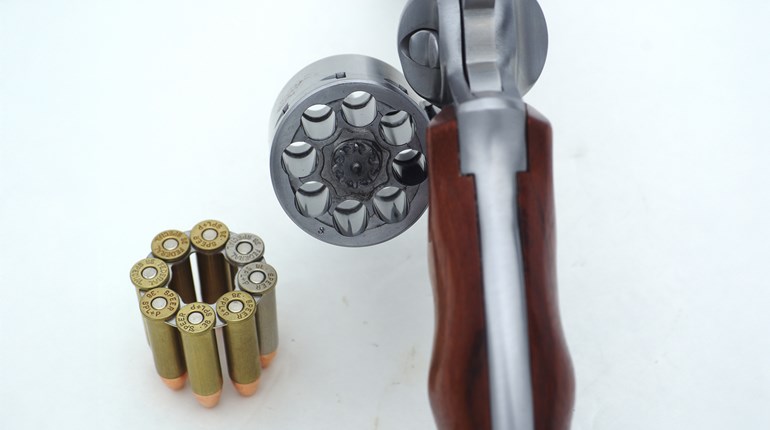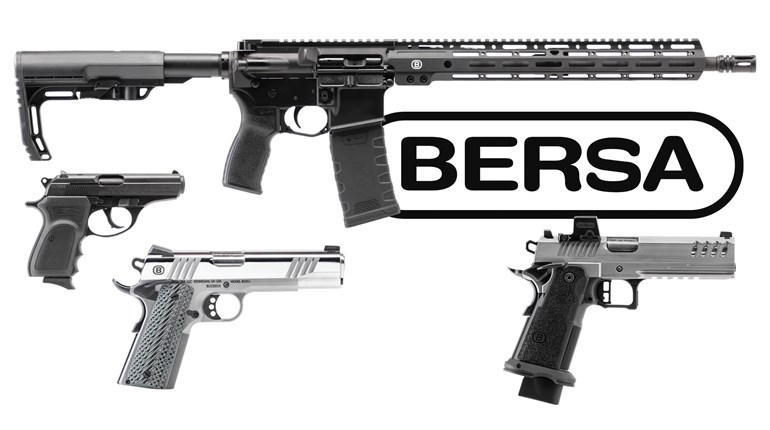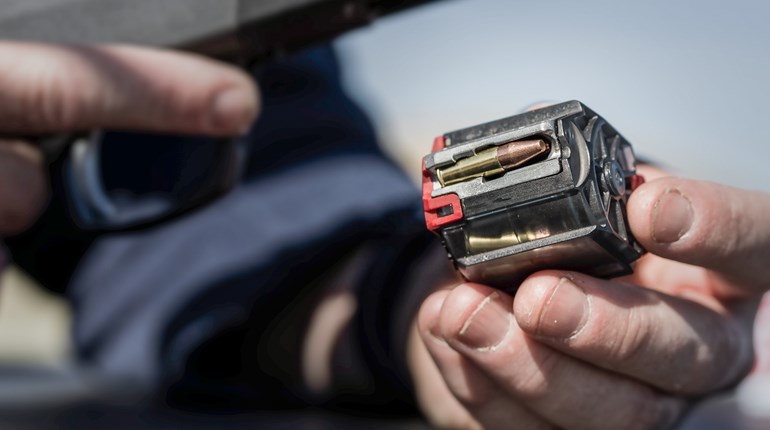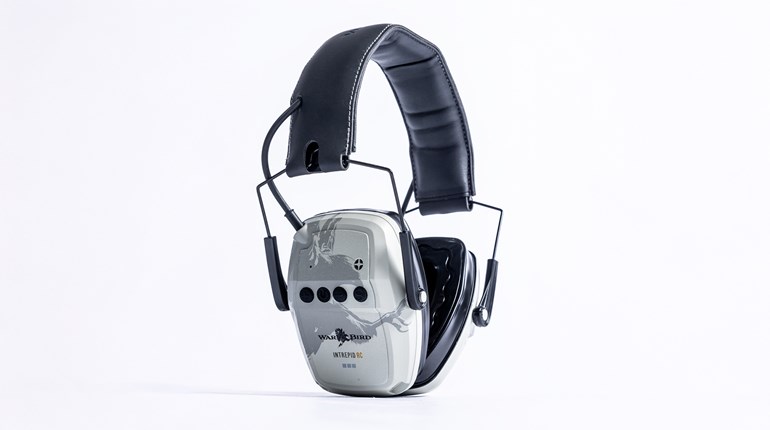I learned to shoot with .22 LR rimfire simply because I couldn’t afford to learn with center-fire guns. I’ve been a fan of the .22 LR round ever since, and I clearly own more .22 LRs than any other caliber. The .22 LR is the perfect learning tool, but when I was learning to shoot in the distant 1960s, there were almost zero guns that truly replicated the center-fire versions. That world has passed. Now we have truly excellent rimfire trainers for teaching the fundamentals in everything from self-defense, to precision and action shooting.

Having said this, in this mix of rimfire trainers, there was a void. Arguably the most popular modern handgun is the Glock series of polymer framed, striker-fired pistols. No one could say that Glock hasn’t influenced modern handguns more than any other design since their introduction. Glock pistols aren’t about novelty, or style. Glocks are designed and marketed with function as the primary goal and whether you like them or not, Glocks work.
While rimfires are fun to shoot and great for training, they aren’t suitable for work. It would be accurate to say that the Glock G44 ($430, Glock.com) is the first Glock pistol introduced that won’t be carried as a working gun—unless you consider training as work. Since part of what I do to earn my bread is teaching shooting, I suppose the Glock G44 could be considered a working gun. It’s certainly something I’ve thought Glock should introduce. One of the most popular pistols for IDPA competition is the G19 and the G44 is dimensionally identical, making it an ideal training and practice gun.
The Glock G44 isn’t just externally similar to the standard Glock design, it is a .22 LR rimfire version of the standard Glock design. It operates exactly like the center-fire guns, it field strips identically to the center-fire guns and with identical external dimensions it fits in the exact same holsters as the Glock G19.

Converting the Glock design to operate with the diminutive .22 LR required some operational changes. First, even though the barrel isn’t attached to the frame as with most rimfire semi-automatics, it doesn’t unlock on firing. There is no cam under the barrel to pull the barrel down out of battery. There is a double captured recoil spring, but the barrel doesn’t tilt up on firing. There isn’t enough energy in the .22 LR round to accomplish this. In fact, the weight of a standard Glock slide is substantially too heavy to allow semi-automatic operation.
To lighten the slide, Glock designed it to be a hybrid combination of steel and polymer. The slide rails and breech face are steel, mated to a polymer upper component that provides the grip surfaces, houses the ejector, and provides mounting areas for the sights. It looks and feels like a steel slide, but is much lighter. The light slide allows for a stronger recoil spring than many .22 LRs, reducing chambering issues commonly found on .22 LR rimfire pistols. Slide racking effort is similar to many center-fire pistols.

All aspects of operation are pure Glock. Magazine and slide release and trigger are pure Glock. Accuracy is certainly adequate for training, about the same as the other rimfire replica pistols, and that impressed me as a bit of an accomplishment since this is a mass-produced .22 LR that doesn’t have a fixed barrel. The magazine drops freely, the slide release is easy to activate, even with an empty magazine and there are four different grip adapters to allow a good fit to any hand. I found the smallest one most comfortable.
Sights are the familiar white outlined U-notch rear and white-dot front. The rear sight is adjustable for both elevation and windage, but the elevation adjustment is somewhat unusual. Both adjustment screws are on the right side of the sight. The windage adjustment is a conventional screw, but the elevation adjustment is a cam that lifts the sight in the housing. Half a rotation provides all the elevation change available and a full rotation puts the rear sight back where it was.

On the subject of the rear-sight elevation adjustment—it wasn’t enough for me to center the group. With the rear sight all the way down, my test gun shot about 3 inches high at 10 yards. I shot a composite group of 60 shots from three ammo manufacturers and it shot all three brands high. I knew a couple of good shooters who’ve shot the G44 and both related the same issue. The solution for one was to change to a taller front sight. Accuracy is on par with similarly priced rimfire trainers in spite of the barrel not being fixed to the frame.

The magazine is remarkably easy to load, with a double-sided button to allow compression of the spring. There’s a five and 10-round mark on the side with an arrow to aid in count. From what I’ve been told the 10-round magazine limit isn’t an effort to allow sales in locations with capacity limits, but rather one of reliability. There is certainly room in the magazine and the follower has a riser to limit capacity, but reliability suffered with a 12-round capacity. In the beginning of the test, loading the last round in the magazine required a bit of attention. If not properly inserted, it angled down and caused a malfunction if the slide was dropped from the locked position. Whether I learned some unconscious technique or the magazines loosened up, I don’t know, but after a few hundred rounds the issue disappeared.
The G44 is a fun gun to shoot, it runs and disassembles exactly like the centerfire Glocks, and it’s a great trainer. The light weight would make it a swell trail gun. I’d like to see a little more weight, but younger and smaller shooters will likely prefer the light weight. I’m predicting it’s going to sell really well, and my biggest criticism is that Glock should have put a rimfire version of their design out sooner.
See more: 5 Things You Didn’t Know About Glock























